Key takeaways:
- Youth engagement in politics is driven by personal experiences and the desire for change, often catalyzed by social issues and community involvement.
- The participation of young people introduces fresh perspectives and fosters discussions, leading to more inclusive political processes.
- Challenges such as feelings of inadequacy, lack of access to information, and financial barriers hinder the political aspirations of Filipino youth.
- Mentorship, civic education, and effective use of social media can significantly enhance youth involvement in political processes.
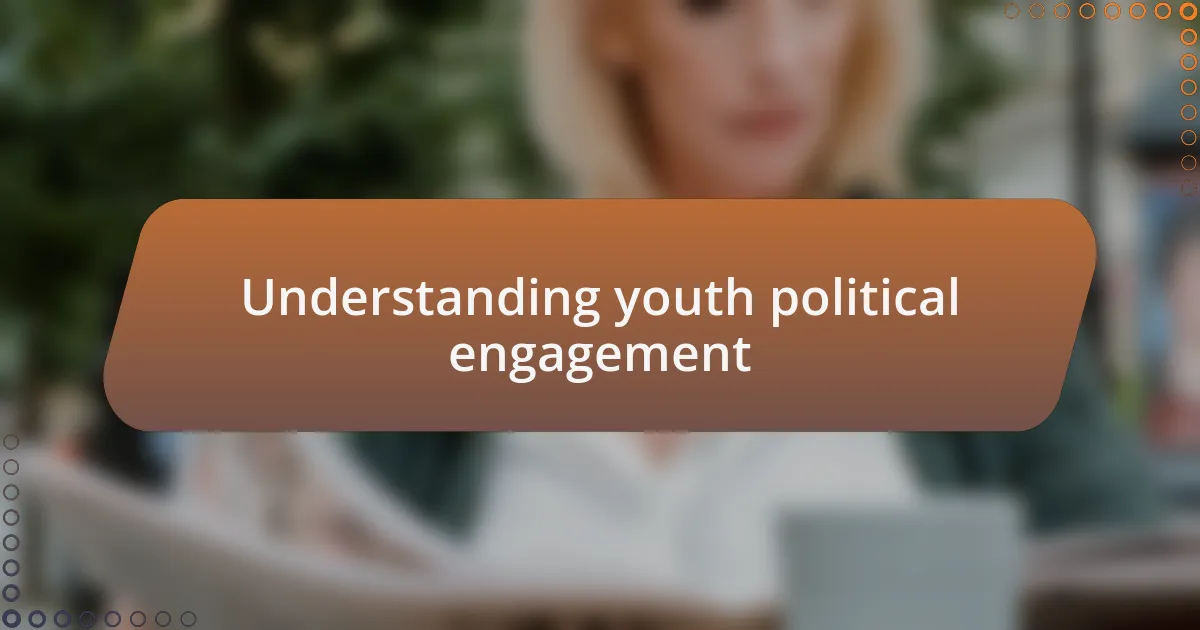
Understanding youth political engagement
Understanding youth political engagement requires a close look at what drives young people to participate in political processes. I remember attending a youth-led forum where a 19-year-old passionately shared how social media had become their primary source of information. It made me wonder, does the digital landscape empower our youth to seek change, or does it only serve as a distraction?
Engagement isn’t just about voting; it’s about being informed and active in discussions that affect their communities. I’ve seen friends who previously felt disillusioned by politics waking up to their civic responsibility after attending a local town hall meeting. This shift in perspective is crucial—how can we encourage more young people to step into these spaces and voice their opinions?
The emotional investment of youth in political issues often stems from personal experiences, like facing economic hardships or social injustices. When I reflect on my own journey, I realize that witnessing unfair treatment around me was a catalyst for my involvement. How can we support this kind of awakening in young people, so they feel empowered to join the political conversation and advocate for meaningful change?
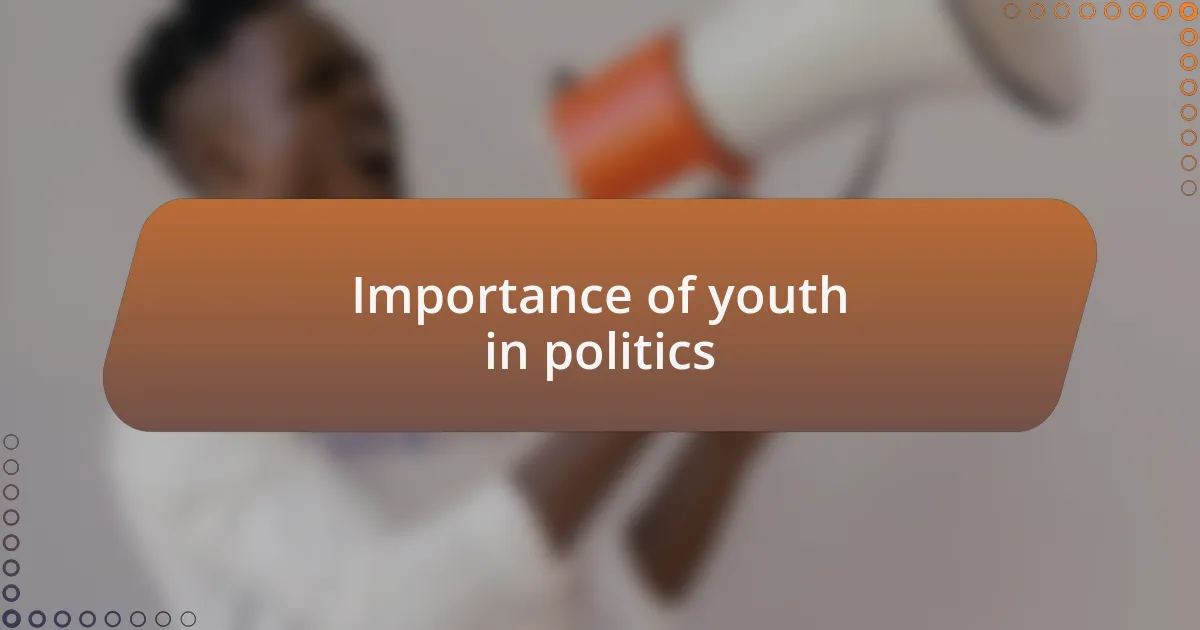
Importance of youth in politics
The role of the youth in politics is indispensable. I recall my first experience at a youth council meeting; the passion in that room was electric. It struck me how fresh perspectives can invigorate traditional political discussions, challenging the status quo and bringing innovative ideas to the forefront.
Youth bring energy and urgency that older generations sometimes lack. I still remember how a group of university students led a demonstration advocating for climate change action and drew hundreds of participants. Their commitment highlighted how young people can mobilize communities and spark essential conversations that resonate far beyond their immediate scope.
Moreover, the involvement of young individuals often leads to greater inclusivity in political processes. I’ve seen firsthand the impact of diverse voices, as a friend who grew up in a low-income neighborhood shared her story, opening dialogue about representation. If youth can advocate for underrepresented communities, how much richer would our political landscape become? Their engagement truly can shape a more equitable future.
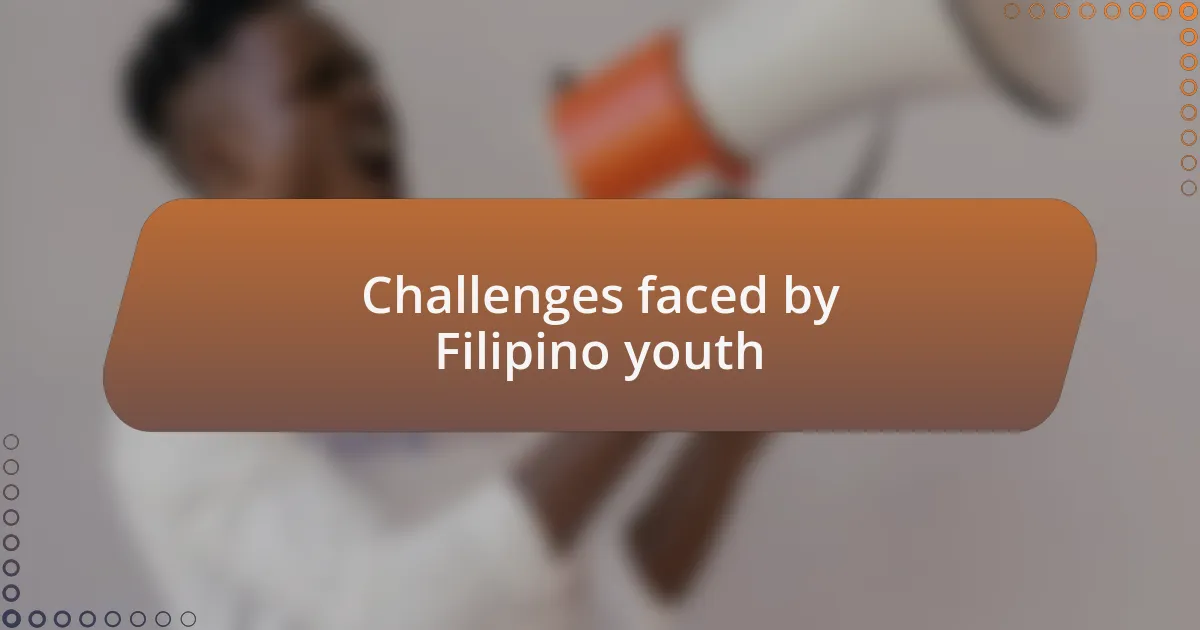
Challenges faced by Filipino youth
Navigating the complex political landscape can feel overwhelming for many Filipino youth. I remember speaking with a friend who was passionate about running for student government but hesitated due to fears of not being taken seriously—her anxiety echoed the experience of many who feel that their youth negates their voice. The challenge of being dismissed as inexperienced or naive can be demoralizing, much like standing at the edge of an ocean, eager to dive in but unsure of the depths beneath.
Another significant hurdle is access to information and resources. I’ve often found that young people, despite their enthusiasm, struggle to gather reliable data that’s crucial for informed decision-making. When I was organizing a local forum, I noticed how difficult it was for everyone to find accurate statistics on pressing issues like unemployment and education. It begs the question: how can we expect youth to engage effectively in political discussions if they don’t have the tools to understand them?
Financial limitations also weigh heavily on the shoulders of aspiring young political activists. A friend of mine who wished to attend a critical leadership training program had to skip it due to its steep registration fees. This reality resonates with many youths who want to make a difference but feel constrained by economic barriers. It illustrates a pressing dilemma: how do we cultivate a politically active youth when financial burdens stand in the way of their aspirations?
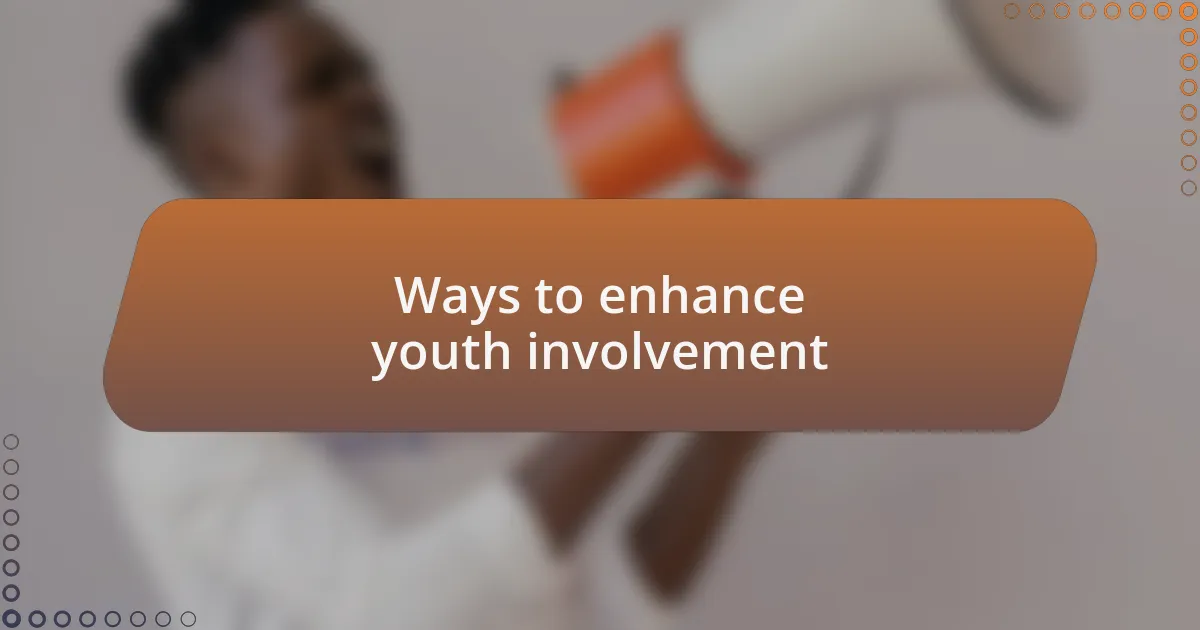
Ways to enhance youth involvement
One effective way to enhance youth involvement in politics is through mentorship programs that connect young minds with seasoned political leaders. I vividly recall a workshop I attended where experienced activists shared their journeys; their stories not only inspired us but also offered practical advice on navigating the political arena. Can you imagine the boost in confidence a young person might feel knowing they have a mentor to guide them through the complexities of political engagement?
Educational institutions can also play a pivotal role by integrating civic education into their curriculums. During my own time in school, discussions on various political ideologies and their implications really sparked my interest in activism. If schools actively encouraged debates and fostered critical thinking about current events, wouldn’t that cultivate a generation of informed and passionate citizens ready to engage?
Lastly, utilizing social media platforms can serve as a powerful tool for youth engagement. I’ve observed how passionate posts and viral campaigns have galvanized young people to support causes, echoing their voices at an unprecedented volume. Given the digital landscape we live in, how can we harness that energy effectively to mobilize youth participation in political processes?
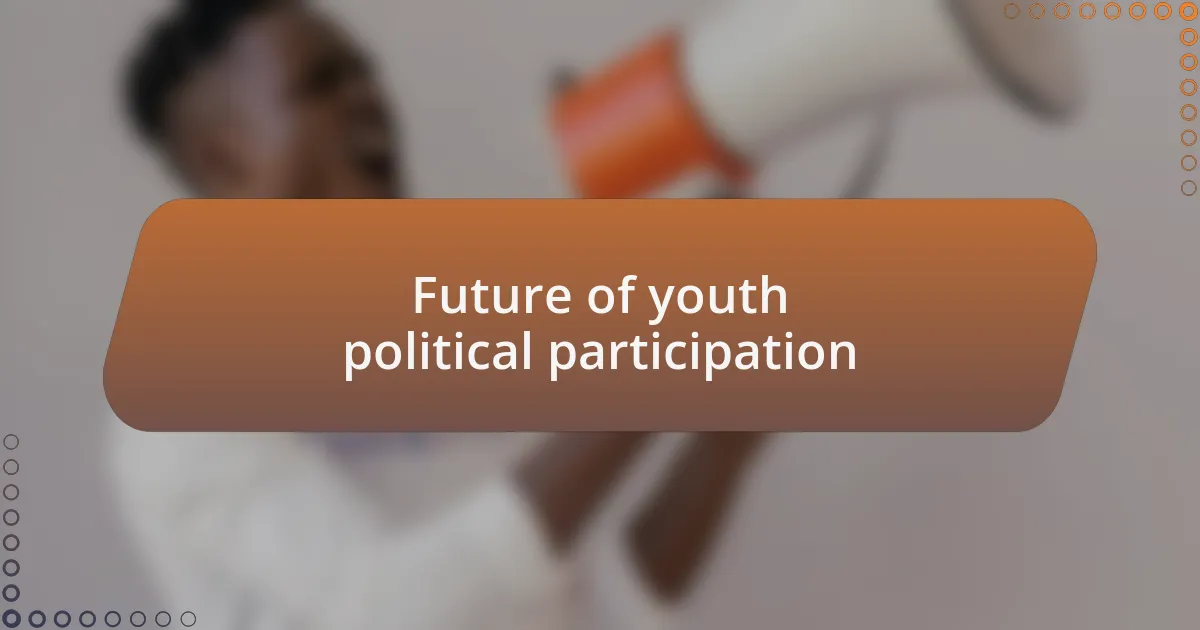
Future of youth political participation
As I look ahead, the future of youth political participation appears bright yet challenging. The younger generation is becoming increasingly aware of global issues, and I’ve seen firsthand how passionate discussions can spark action. Remember the last protest you witnessed? It was a testament to the power of youth voices demanding change, and I believe this momentum will only grow stronger in the coming years.
Moreover, with technology at their fingertips, young people have unprecedented access to information and platforms to express their views. I often find myself scrolling through social media, where I see vibrant debates and calls to action that resonate with my peers. Isn’t it fascinating how a well-crafted tweet can mobilize thousands in mere minutes? This digital engagement not only helps raise awareness but also encourages young individuals to take an active role in political discourse.
Engagement isn’t merely about expressing opinions; it’s about transforming those opinions into action. I recall my own journey of turning a casual interest in local politics into volunteering for a community organization. It was empowering to realize that my voice mattered, and I believe this realization will inspire more youth to step into leadership roles. If we cultivate this sense of agency among the younger generation, what incredible advancements could we witness in our democratic processes?